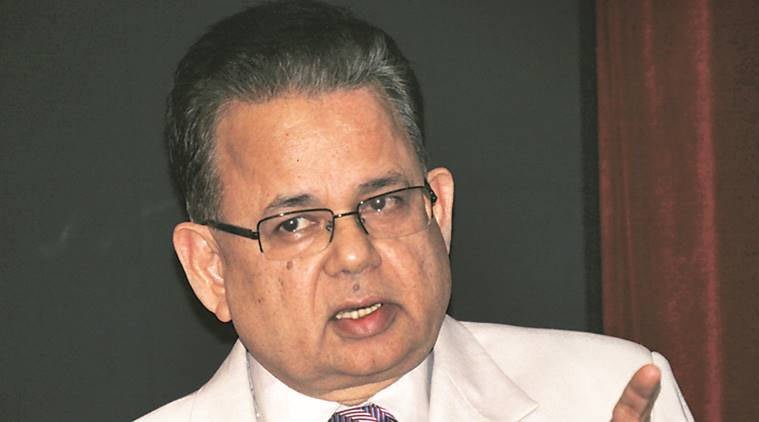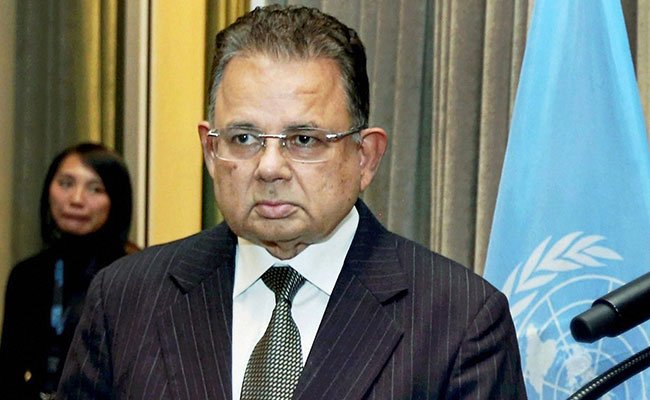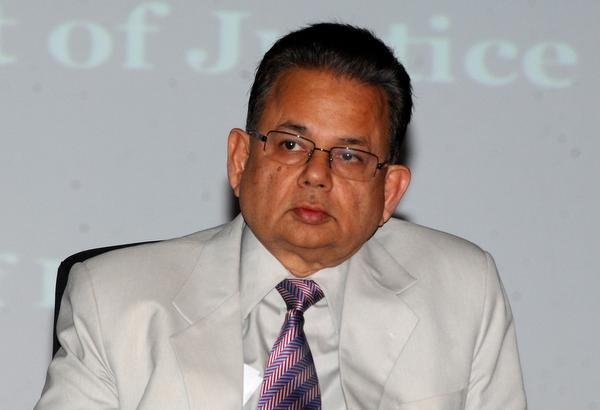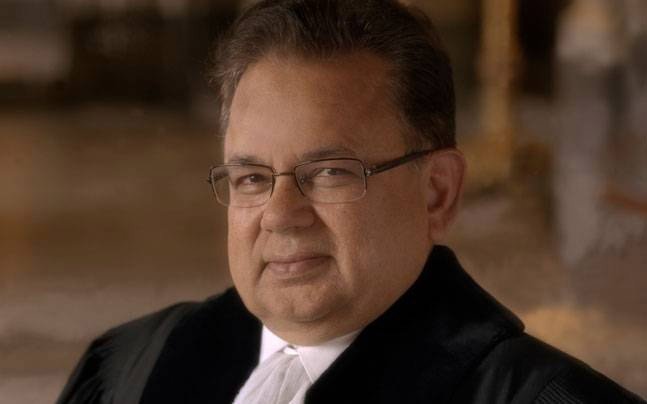Justice Dalveer Bhandari was re-elected as a judge at the International Court of Justice (ICJ) on Tuesday, making him the third Indian to secure a prominent position in a United Nations (UN) body in recent months.
India’s victory came after Britain’s Permanent Representative to the UN, Matthew Rycroft, in a statement said that the UK had decided to withdraw Sir Christopher Greenwood as a candidate for re-election as a Judge of the ICJ.
Justice Bhandari was re-elected for a nine-year term in the ICJ beginning February 2018. In 11 rounds of voting before Monday there was little doubt that India commanded the numbers. But the UK was seen to be exploiting its privilege as a permanent member of the security council, reports The New Indian Express.

Who is Dalveer Bhandari?
Justice Bhandari belongs to an illustrious judicial career and also has a legal lineage. He comes from a family of lawyers in Rajasthan.
Bhandari has a degree in humanities, followed by one in law from Jodhpur University after which he went on to practice law at the Rajasthan High Court between 1968 and 1970.
Bhandari’s re-election process
For Bhandari’s re-election, there were seven rounds of voting pitting him against the UK’s Christopher Greenwood over two days, on November 9 and November 13. While Bhandari got between 110 to 121 votes, Greenwood’s votes varied between 68 and 79 — much less than the halfway mark of 97.
In the UNSC, Greenwood got nine votes, while Bhandari got five and there was one abstention during the last round held on November 13. This was a drop from November 9, when India had got six votes in favour while the UK had got nine, reports The Indian Express.
According to UN rules, the candidate who gets an absolute majority in both the UNSC and the UNGA is the clear winner.

What Bhandari’s re-election to the ICJ means?
Bhandari’s re-election to the ICJ is significant as his presence ensures that India will continue to remain on the legal high table of the world at a time when several globally significant cases such as the one involving former Navy official Kulbhushan Jadhav against Pakistan is under way there.
An official has pointed out that Judge Bhandari’s tenure in the ICJ is significant as it coincided with the changing nature of the court itself as it reaffirmed arrival of the new global players like India, reports The Hindu.
Analysts say the election result was crucial for India to gauge the support it enjoys in the world body where New Delhi has been campaigning for reforms, including a permanent seat for itself in the powerful Security Council.

According to officials, the victory of Justice Bhandari was the result of intense efforts made by India since June. Support was sought from nearly 175 nations, including at the highest level, culminating in Bhandari’s re-election to the world court, reports Times Now.
Officials also said that External Affairs Minister Sushma Swaraj directly spoke with her counterparts from nearly 60 countries to push Bhandari’s matter. At the highest level also, Prime Minister Narendra Modi raised the issue during his meetings with world leaders.
According to The Times of India, the UK’s proposal for a joint conference between the UNGA and UNSC to end the stalemate made things favourable for India.

What is the media saying?
“An acrimonious competition”, said British paper The Guardian while describing the race between India and the United Kingdom (UK) for the 15th and final place on the Bench of the ICJ.
The victory of Justice Bhandari to ICJ with overwhelming majority in UN General Assembly (UNGA) is a signal of diminishing return of veto powers of permanent member of UN Security Council (UNSC) thereby giving a voice to developing countries at the world’s biggest multilateral forum, reports Economic Times.
Syed Akbaruddin, the Indian Permanent Representative, described Justice Bhandari’s re-election as a “victory for emerging new India,” and an “acknowledgement that the world now needs to make space for an asserting India.”
A vote that brings cheer to a billionIndia’s nominee Judge Bhandari re-elected to ICJGeneral Assembly 183 Security Council 15 🙏🏽 pic.twitter.com/ycclYQ7tcI
— Syed Akbaruddin (@AkbaruddinIndia) November 20, 2017
(Feature Image Source: AFP)

















